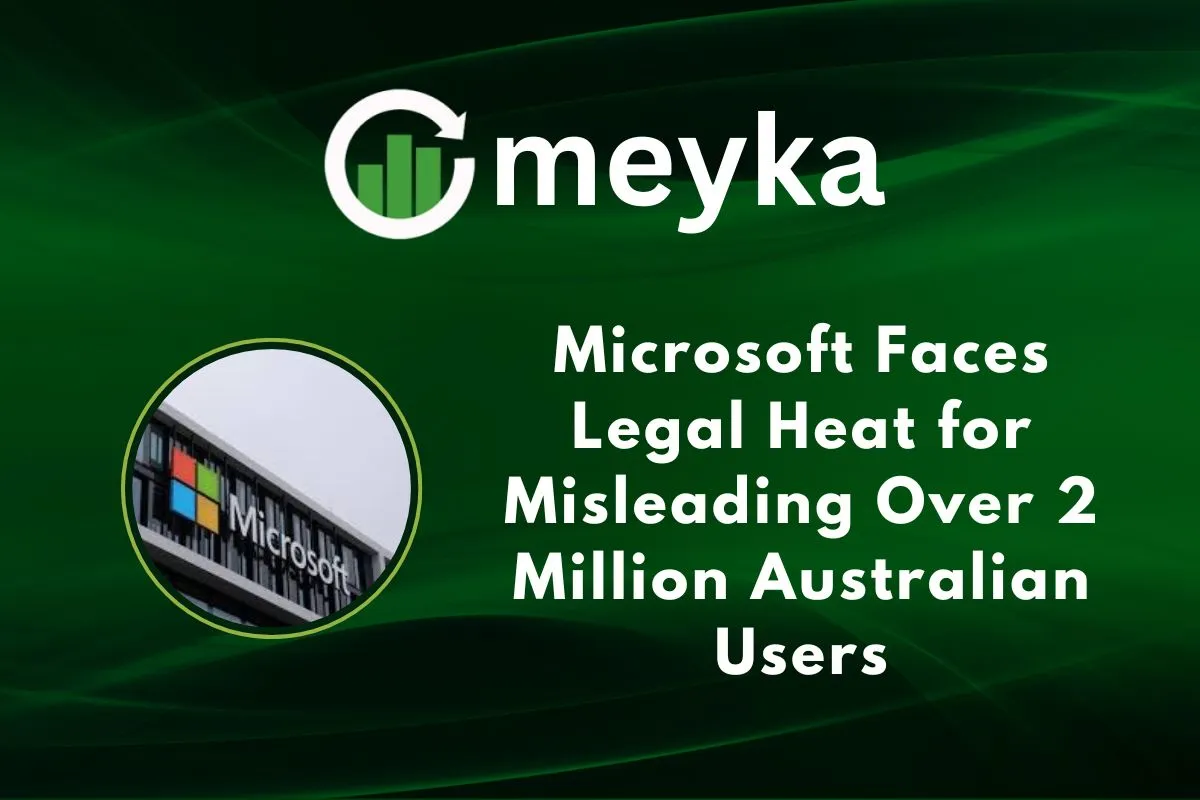Microsoft Faces Legal Heat for Misleading Over 2 Million Australian Users
We’re seeing major headlines this week as the Australian Competition & Consumer Commission (ACCC) has taken Microsoft Corporation to court. The issue: About 2.7 million Australians say they were misled when Microsoft raised prices for its Microsoft 365 subscription bundle after adding its AI tool, Copilot. Such legal action matters. It brings into focus how big tech companies communicate changes, especially when AI gets bundled and prices go up. For everyday users like us, it’s about clarity, choice, and trust in services we rely on.
What the Allegations Are
Here’s what the ACCC is claiming:
- Microsoft added its AI assistant, Copilot, to its Microsoft 365 Personal and Family plans on 31 October 2024.
- With this addition, the annual price for the Personal plan went from A$109 to A$159 (≈ 45% jump) and for the Family plan from A$139 to A$179 (≈ 29% jump).
- The ACCC says Microsoft told auto-renewing subscribers: accept the new, higher-price plan with Copilot or cancel. But it “deliberately omitted” telling them of a third option, a “Classic” plan without Copilot at the old price.
- That cheaper option only emerged deep in the cancellation flow, meaning most users weren’t aware it existed when the renewal notice came.
In short, the claim is that Microsoft misled users by not giving full, upfront disclosure of their choices.
How Microsoft Responded & the Company’s Position
Microsoft has responded by stating that “consumer trust and transparency are top priorities” and that they are reviewing the ACCC’s claim in detail. They argue that bundling Copilot and price changes reflect value added over the years and innovation ahead. However, the ACCC’s view is that communication matters as much as innovation. Users must have a real choice, not feel forced.
We should note: Microsoft did publish a blog post and send emails about upcoming price increases. But the ACCC says those communications didn’t clearly mention the Classic plan option. So, the heart of the matter is not whether Copilot could be valuable, but whether Microsoft clearly laid out all the available paths and prices.
Legal & Regulatory Framework
The ACCC has initiated proceedings in the Australian Federal Court against Microsoft Australia Pty Ltd and its U.S. parent company. Under the Australian Consumer Law, misleading or deceptive conduct is prohibited. For each breach, a corporation may face:
- A maximum penalty of A$50 million, or
- Three times the benefit obtained from the conduct, or
- 30% of the corporation’s adjusted turnover during the breach period (if the benefit cannot be determined).
The ACCC seeks: declarations of breach, injunctions to stop future misconduct, consumer redress (compensation or refund), and legal costs. What makes this case particularly notable: it affects millions of consumers in a key household productivity product (Microsoft 365) and involves the fast-moving AI feature rollout.
Impact on Consumers & Market Implications
For consumers
We are talking about nearly 2.7 million Australians who perhaps renewed at a higher cost when they might have kept the lower price if they had been clearly informed of the option.
Some may feel they were not given a full choice. Trust in subscription services can get shaken when “hidden” options surface only after deep account navigation.
For the market
This sets a precedent for how tech firms “bundle” AI into existing services. If users feel forced into higher-cost tiers, regulators might tighten disclosure rules. It also affects investors and businesses: clarity of monetization strategies for AI is under regulatory scrutiny. For Microsoft, this legal matter may not derail its AI ambitions, but it raises a risk dimension for how the public perceives the value and fairness of upgrades.
For the broader society
This case highlights consumer rights in digital services, especially how changes are communicated. As more services shift to subscription + AI models, transparency becomes a foundational expectation.
Possible Outcomes and What to Watch
Legal outcome scenarios
- If Microsoft is found liable, it might incur hefty penalties, must change how it presents subscription options, and may need to issue refunds or redress.
- If Microsoft successfully defends, it may face minimal penalties, but reputational damage and regulatory watch might remain.
What to watch
- The court decision: how much penalty, what forms of remediation?
- Changes in how Microsoft will present subscription choices in Australia and possibly globally (if regulatory expectations spill over).
- Whether other jurisdictions follow suit (e.g., via their consumer protection agencies).
For users/businesses
We recommend: check your subscription plan carefully. Verify if your provider offers a “lite” or older version without newer add-ons, and whether that is clearly presented. Businesses should ensure that in their own subscription change communications, they clearly present all options, not just the upgraded one.
In this, this may shape how the future of upgrades, AI-bundling, and pricing transparency plays out in the digital economy.
Conclusion
We’re watching a critical moment in the intersection of subscriptions, AI, and consumer rights. Microsoft’s case in Australia underlines how innovation must go hand in hand with clarity. Users deserve real choice, clear communication, and transparent pricing. In the fast-evolving tech world, upgrades and new features will keep coming, but we shouldn’t have to guess our options. For consumers, businesses, and regulators alike: voice clarity and choice before change becomes the expectation, not a surprise.
For Microsoft and beyond, the message is clear: innovation is welcome, but informing users clearly is non-optional.
Disclaimer:
The content shared by Meyka AI PTY LTD is solely for research and informational purposes. Meyka is not a financial advisory service, and the information provided should not be considered investment or trading advice.






